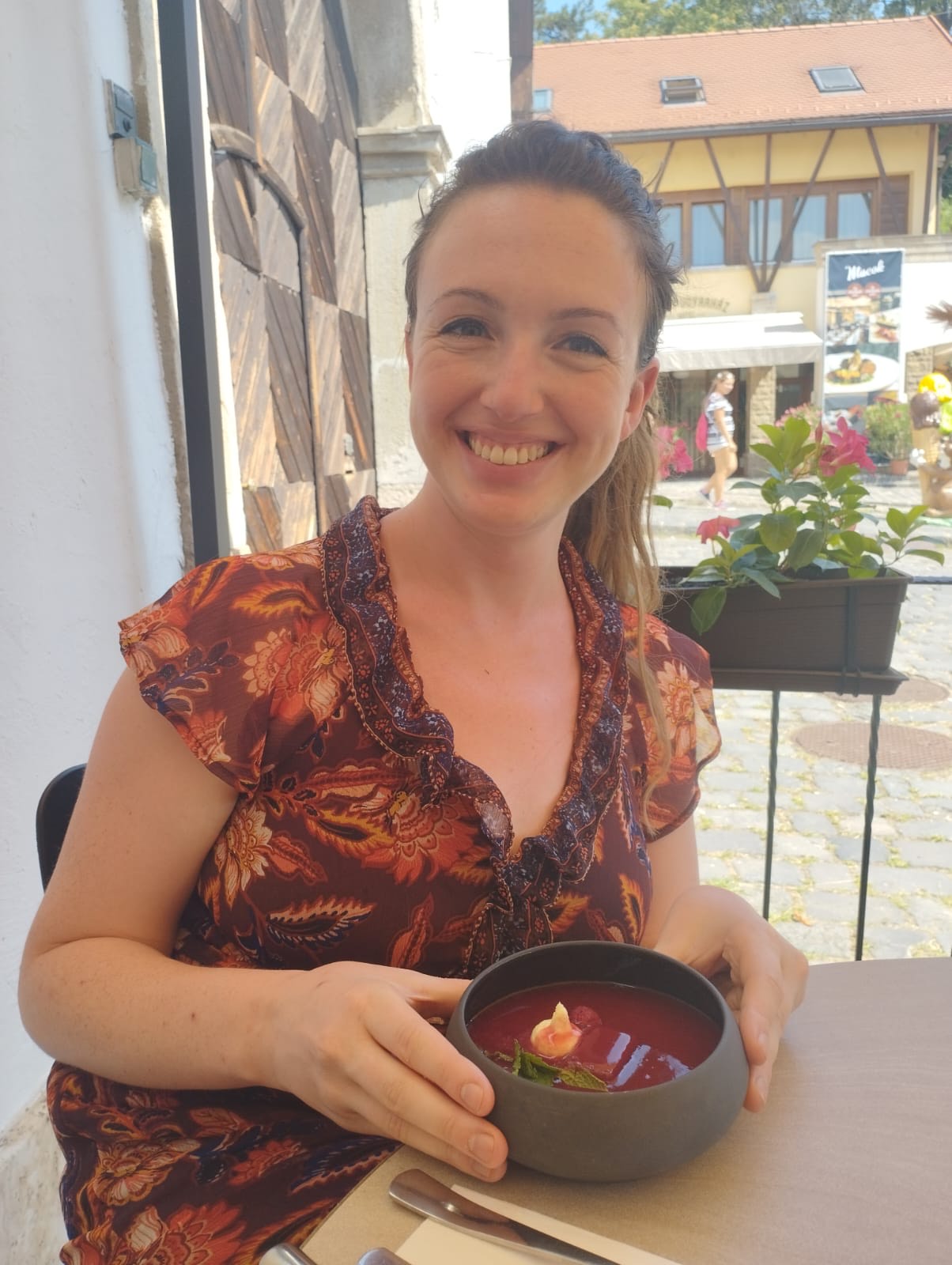1. Can you tell us a bit about yourself? Where you grew up etc.?
I am originally from New Jersey, I did my undergraduate in history and political science at the college of New Jersey. I worked in DC in public policy for a few years. I have always been interested in languages, especially in Eastern European languages. This led me to do my Masters in European European History, Politics, and Society at Columbia University, I studied Polish and Russian there. I have a heritage background in Hungary, and I ended up getting a title 8 to do intensive Hungarian study over the summer and go to Budapest for four works with the Hungarian professor at IU, Valeria Varga. Her enthusiasm encouraged me to continue my Hungarian studies this fall. I learned a lot in a short amount of time. I wanted to get more involved in sharing the uniqueness of Hungarian language and culture with American students, because there is not a lot of exposure of it to American students. I am now a PhD student in the Slavic and East European Languages and Cultures department. I am focusing on Polish linguistics, and cultural histories with a minor in Hungarian to continue my studies.
2. What is it that you study here at IU?
I would say I am open, since I just started this fall, but overall my focus is going to be something related to Polish and Russian historical linguistics, I like comparative linguistics a lot. I also have a lot of interested in Polish and Slavic cultural history. I am excited to continue my studies, and continue to improve my Hungarian since it is a unique experience here at IU compared to other universities.
3. What is it that brought you to study Hungary?
I have heard a lot about, especially as someone who likes to learn languages, that Hungarian is unique, it is one of the few non Indo-European languages in Europe. It is only distantly related to Finnish and Estonian. In some ways, it is a language isolate, which is very interesting. Because it is so unique and everyone says it is so difficult, and because of the more I heard this, the more I felt the need to learn this language. I taught myself Polish, so I like to learn languages that have less exposure in America. I think Hungarian is very logical, even though people find it daunting, I think it is really fun to learn. It makes you sound really smart that you know Hungarian.
4. What kind of activities is the Hungarian Cultural Association involved with now? Do you host events? Conversation hours? Etc.
We do weekly Hungarian coffee hours at the Runcible Spoon for all levels. We have beginner students and native speakers. There is a bigger Hungarian population in Bloomington than I knew. It is really nice to have students at all levels having exposure to Hungarian native speakers. I really encourage anyone interested in Hungarian or who has Hungarian heritage to come join us and speak some Hungarian! Grab a coffee and speak with others who speak Hungarian. We are also having a picnic soon, which is a potluck, where people are bringing in different Hungarian dishes, like pastries, which will be delicious. It will be nice to continue to grow and foster connections between Hungarians and Hungarian language learners. We are also having a conference in October about Hungarian, I don’t know the specific details. As far as I know, it is on history, culture, literature, and it will be at IU. We will have more information and fliers soon. I am thinking of trying to grow our connections to other clubs. One of my friends is president of the Baltic Studies and Cultural Club, and we are talking about doing some events around Estonian, Hungarian, and Finnish, which are all taught at IU. People in those clubs who may not speak the same languages, but who have similar interests will meet each other here. People can see all the cool language learning opportunities at IU. I am also trying to do more cultural activities. Luca has suggested doing folk dancing, which we will hopefully do soon. We also want to do a scavenger hunt for all ages, where they can find Hungarian facts, talk about culture, bring in food, and clothes. I think it will be really fun. I am someone who likes to continue to grow a club, I want it to be vibrant and as welcoming to all people. I want it to be open, as I am also learning a lot as we go, about my heritage, and I want to continue to grow and foster the connections.
5. What has the HCA been involved with in the past/can you tell us a bit about the history of the HCA?
We have always done coffee hours. Dallin did a great job as president, as it was really challenging during COVID. He is very involved in the Hungarian program. He was my teacher for the first part of the Hungarian program. It is realty impressive to be able to teach a language that isn’t your native language. There is a big push to grow the club since COVID is over. We don’t think doing virtual events is the same as doing in person, so it is exciting to do these events in that regard.
6. What are your plans/wishes for the HCA in the future?
Definitely, besides events, I want to grow events, make those connections with other clubs, have more of a vibrant social space, make it a more active club and events, and spread Hungarian culture with people who might not have as much exposure to it.


